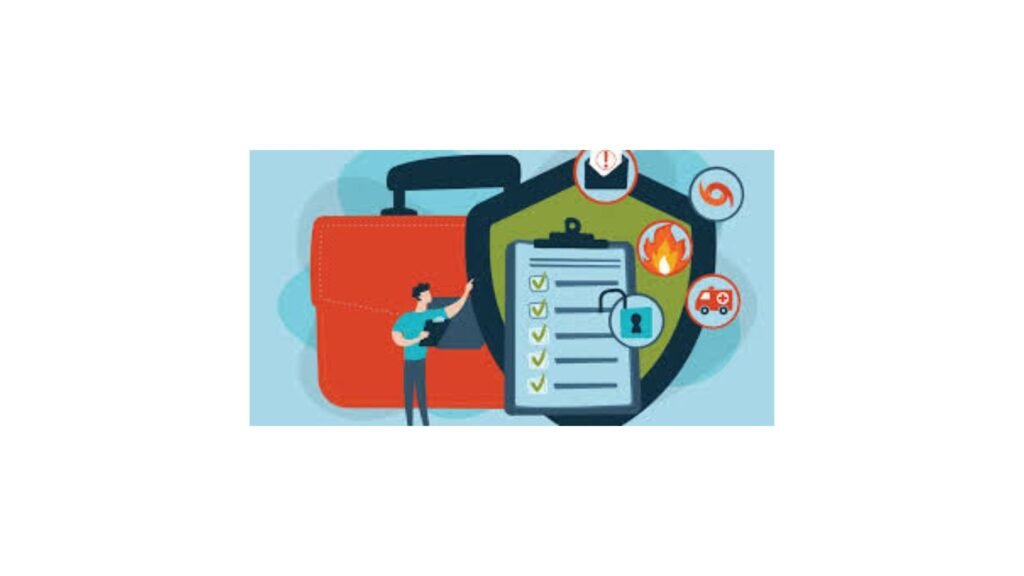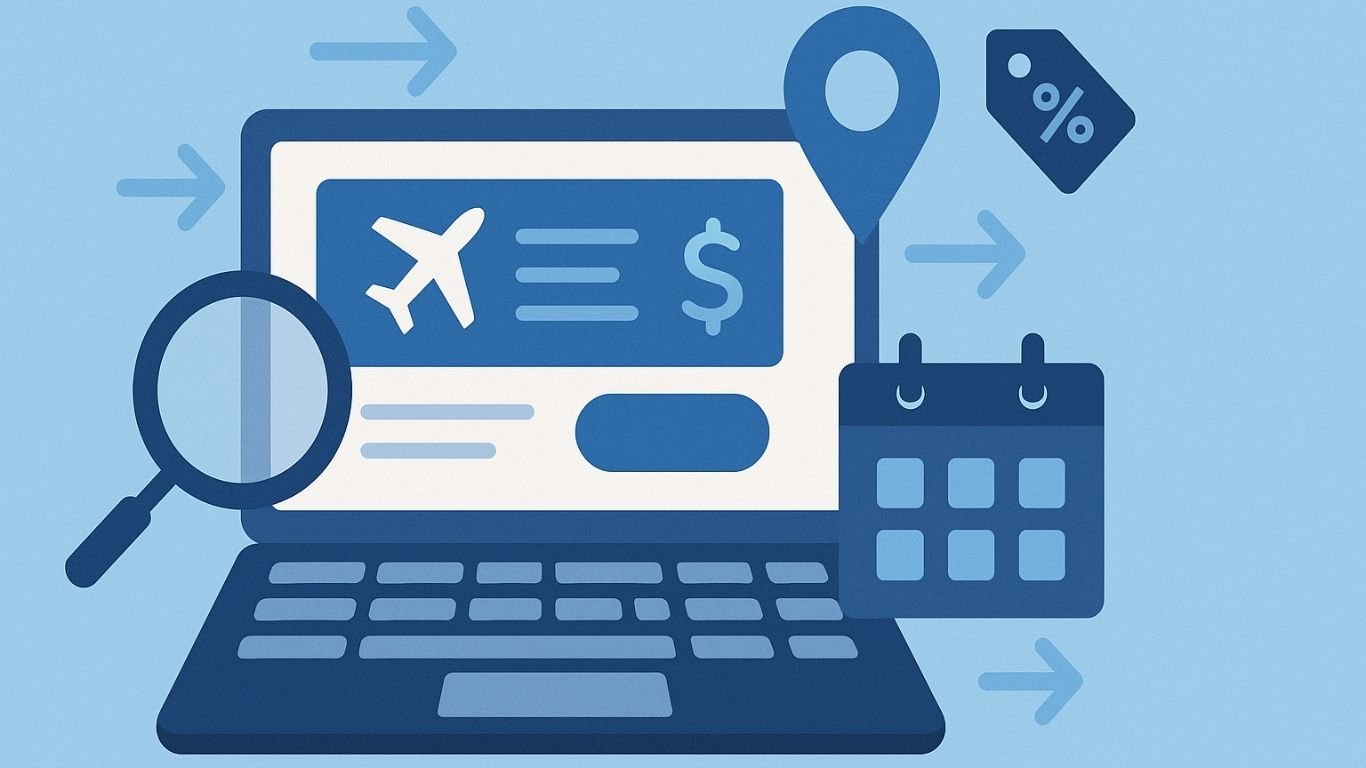Traveling offers unparalleled opportunities to explore new cultures, landscapes, and experiences. However, even the most well-planned trips can be disrupted by unexpected events. From medical crises to natural disasters, travel emergencies can occur at any time, often leaving travelers vulnerable and unprepared.
Understanding how to respond to these situations is crucial for ensuring safety and minimizing stress. This guide provides detailed, actionable insights on handling common travel emergencies, from lost documents to civil unrest. Whether you’re a seasoned traveler or embarking on your first international trip, this article will equip you with the knowledge to navigate unforeseen challenges effectively.
Table of Contents
Understanding Common Travel Emergencies
Travel emergencies can arise in various forms, each requiring a specific response. Recognizing these scenarios and understanding their implications can help you prepare effectively and act decisively when needed.
Medical Emergencies
Medical emergencies are among the most frequent and stressful issues travelers face. These can range from minor ailments like food poisoning to severe conditions such as heart attacks or accidents. According to the U.S. Department of State, over 2,500 Americans die abroad annually, with many deaths resulting from preventable medical issues.
Key challenges include unfamiliar environments, limited access to quality healthcare, and language barriers. For example, a traveler in a remote area may struggle to find a hospital equipped to handle serious injuries.
Lost or Stolen Documents
Losing your passport, visa, or other essential documents can disrupt your trip significantly. Theft is a common risk in crowded tourist areas, while misplacement can happen to even the most cautious travelers. Without proper identification, you may face difficulties crossing borders, checking into accommodations, or accessing financial services.
Natural Disasters
Natural disasters such as earthquakes, hurricanes, or floods can strike without warning. In 2023 alone, the Global Disaster Alert and Coordination System reported over 300 natural disasters worldwide. Travelers in affected areas may find themselves stranded, injured, or without basic necessities.
Transportation Issues
Flight cancellations, lost luggage, and unsafe ground transportation are common disruptions. The U.S. Department of Transportation reported over 200,000 flight cancellations in 2022, leaving millions of passengers stranded.
Civil Unrest or Terrorism
Political instability and terrorism pose significant risks in certain regions. The Global Terrorism Index highlights that while terrorism-related deaths have declined globally, the threat remains in areas like the Middle East and South Asia.
Vehicle Problems
Renting a car or motorcycle abroad can lead to breakdowns or accidents, especially in countries with poor road conditions or unfamiliar driving laws.

Pre-Trip Preparation for Emergencies
Preparation is the cornerstone of handling travel emergencies effectively. Taking proactive steps before your trip can save you time, money, and stress. Here’s how to prepare:
Travel Insurance Essentials
Travel insurance is a non-negotiable safeguard. It covers medical expenses, trip cancellations, lost luggage, and emergency evacuations. According to a survey by the U.S. Travel Insurance Association, 70% of travelers who faced emergencies abroad benefited from having insurance. Ensure your policy includes coverage for medical emergencies, trip interruptions, and evacuation.
Emergency Contact Information
Compile a list of emergency contacts, including local embassies, hospitals, and your insurance provider. Store this information in multiple formats—digital (on your phone or cloud) and physical (printed copies). Apps like TripIt or Google Keep can help organize and access this information quickly.
Copies of Important Documents
Make copies of your passport, visa, travel insurance, and other critical documents. Store them separately from the originals and upload digital copies to a secure cloud service like Google Drive or Dropbox. This ensures you can access them even if the originals are lost or stolen.
Packing a First-Aid Kit
A well-stocked first-aid kit can address minor injuries and illnesses. Include bandages, antiseptic wipes, pain relievers, and any prescription medications. Tailor your kit to your destination—for example, add insect repellent for tropical regions or altitude sickness medication for mountainous areas.
Researching Local Laws and Customs
Understanding local laws and customs can prevent legal issues and cultural misunderstandings. For instance, some countries have strict drug laws or dress codes that travelers must adhere to. Researching these details in advance can help you avoid unintentional offenses.
Responding to Medical Emergencies Abroad
Medical emergencies can be overwhelming, especially in an unfamiliar country. Knowing how to respond quickly and effectively can make a significant difference in outcomes.
Locating Medical Assistance
In a medical emergency, time is critical. Use apps like TravelSafe or International SOS to locate nearby hospitals and clinics. Many countries have emergency hotlines (e.g., 911 in the U.S., 112 in Europe) that can connect you to local medical services. If you’re in a remote area, ask locals or your accommodation staff for the nearest medical facility.
Communicating with Healthcare Providers
Language barriers can complicate medical care. Carry a translated list of common medical phrases or use translation apps like Google Translate to communicate effectively. If possible, bring a local or bilingual companion to assist with communication.
Understanding Medical Insurance Coverage
Review your travel insurance policy to understand what is covered. Some plans require pre-approval for certain treatments or hospitals. Keep your insurance card and emergency contact numbers readily accessible. If your policy includes medical evacuation, confirm the process for activating it.
Handling Prescription Medications
Carry a copy of your prescriptions and ensure you have enough medication for the duration of your trip. Research local regulations, as some medications may be restricted or require documentation. For example, Japan has strict rules about bringing certain medications into the country.

Dealing with Lost or Stolen Documents
Losing your passport, visa, or other essential documents can be a traveler’s worst nightmare. However, knowing the steps to take can help you recover quickly and minimize disruptions.
Reporting the Loss or Theft
File a police report immediately. This document is often required to obtain replacement documents or file insurance claims. Provide as much detail as possible, including when and where the loss or theft occurred.
Contacting Your Embassy or Consulate
Your embassy or consulate can issue emergency travel documents and provide assistance. Keep their contact information handy, and visit their website for specific instructions on what to bring (e.g., identification, photos, police report). Many embassies offer 24/7 emergency services for citizens abroad.
Obtaining Temporary Travel Documents
Temporary passports or visas can be issued quickly in emergencies. Be prepared to provide identification, proof of citizenship, and a police report. Some countries may also require additional documentation, such as flight itineraries or proof of accommodation.
Securing Financial Assistance
Notify your bank and credit card companies to prevent fraudulent transactions. Many embassies offer emergency loans or grants to stranded travelers. If you’re unable to access funds, contact family or friends for assistance.
Navigating Natural Disasters and Unforeseen Events
Natural disasters and unforeseen events, such as earthquakes, hurricanes, or political unrest, can disrupt travel plans and pose serious risks. Knowing how to respond can help you stay safe and minimize the impact on your trip.
Staying Informed with Local Alerts
Sign up for local emergency alerts and monitor news updates. Apps like FEMA, Red Cross, or local government platforms provide real-time information. Follow official social media accounts and check weather forecasts regularly.
Following Evacuation Orders
Comply with local authorities’ instructions promptly. Delaying evacuation can put you at greater risk. If you’re unsure about evacuation routes, ask hotel staff or local residents for guidance.
Securing Shelter and Supplies
Identify safe locations, such as designated shelters or sturdy buildings, and stock up on essentials like water, non-perishable food, flashlights, and batteries. Keep a portable charger for your phone and a first-aid kit readily accessible.
Communicating with Family and Friends
Keep loved ones informed of your whereabouts and status. Use social media, messaging apps, or email to stay connected. Share your location and plans regularly, especially if you’re in a high-risk area.

Staying Safe During Transportation Issues
Transportation disruptions, such as flight cancellations, lost luggage, or unsafe ground transportation, are common travel challenges. Knowing how to handle these issues can help you stay safe and minimize inconvenience.
Handling Flight Cancellations or Delays
Flight cancellations and delays are among the most frequent travel disruptions. The U.S. Department of Transportation reported over 200,000 flight cancellations in 2022. If your flight is canceled, contact your airline immediately for rebooking options. Know your rights—many airlines offer compensation or accommodations for significant delays.
Dealing with Lost Luggage
If your luggage is lost, file a report with the airline and provide a detailed description of your belongings. Keep essential items, such as medications, travel documents, and a change of clothes, in your carry-on. Track your claim status and follow up with the airline regularly.
Ensuring Safe Ground Transportation
Use reputable transportation services and avoid unlicensed taxis. Research local transportation options in advance, and verify the credentials of ride-sharing drivers. In some countries, pre-booking airport transfers through trusted providers is advisable.
Understanding Transportation Rights
Familiarize yourself with passenger rights in your destination country. For example, the European Union offers compensation for flight delays exceeding three hours. Knowing your rights can help you advocate for fair treatment during disruptions.
Protecting Yourself from Civil Unrest and Terrorism
Civil unrest and terrorism pose significant risks in certain regions. While these events are rare, being prepared and vigilant can help you stay safe.
Avoiding High-Risk Areas
Check travel advisories from your government (e.g., U.S. Department of State, UK Foreign Office) and avoid regions with ongoing conflicts or high crime rates. Stay informed about local developments and adjust your itinerary if necessary.
Staying Aware of Your Surroundings
Be vigilant in crowded places, such as markets, tourist attractions, and public transportation hubs. Avoid displaying valuables, and keep a low profile. Trust your instincts—if a situation feels unsafe, leave immediately.
Following Local Authority Instructions
Comply with curfews, roadblocks, or other safety measures imposed by local authorities. Avoid participating in or observing protests, as these can escalate quickly.
Communicating with Your Embassy
Register with your embassy before traveling. They can provide assistance and updates during emergencies. In high-risk areas, check in with your embassy regularly and follow their recommendations.
Post-Emergency Procedures
Once the immediate crisis has passed, there are several steps you should take to address the aftermath of a travel emergency. These actions can help you recover financially, emotionally, and logistically.
Filing Insurance Claims
Document all expenses and losses related to the emergency, including receipts, police reports, and medical records. Submit your insurance claim promptly, ensuring you provide all required paperwork. Follow up with your insurer to track the status of your claim.
Seeking Emotional Support
Travel emergencies can be traumatic. If you’re struggling to cope, seek counseling or join support groups. Many organizations, such as the Red Cross, offer resources for emotional recovery after crises.
Documenting Expenses and Losses
Keep detailed records of all expenses incurred during the emergency, such as medical bills, replacement documents, or additional accommodation costs. This documentation is crucial for insurance claims and potential reimbursement.
Reviewing and Improving Travel Safety Practices
Reflect on the experience and identify areas for improvement. Update your emergency plans, such as revising your packing list or researching additional safety measures. Share your insights with fellow travelers to help them prepare for similar situations.
FAQ
1. What should I do if I lose my passport abroad?
Report the loss to local police and contact your embassy or consulate immediately. They can issue emergency travel documents to help you return home.
2. Does travel insurance cover natural disasters?
Most policies cover trip cancellations or interruptions due to natural disasters. However, coverage varies, so review your policy details carefully.
3. How can I stay informed about local emergencies while traveling?
Sign up for local emergency alerts, monitor news updates, and follow official social media accounts. Apps like FEMA and Red Cross also provide real-time information.
4. What items should I include in a travel first-aid kit?
Include bandages, antiseptic wipes, pain relievers, prescription medications, and any destination-specific items like insect repellent or altitude sickness medication.
5. How do I handle a medical emergency in a non-English-speaking country?
Use translation apps or carry a translated list of medical phrases to communicate with healthcare providers. If possible, seek assistance from a bilingual local or your embassy.
6. What should I do if my flight is canceled?
Contact your airline for rebooking options and know your passenger rights. Many airlines offer compensation or accommodations for significant delays.
7. How can I protect myself from theft while traveling?
Avoid displaying valuables, use anti-theft bags, and keep important documents in a secure location. Be cautious in crowded areas and trust your instincts if a situation feels unsafe.
8. What steps should I take after a travel emergency?
File insurance claims, document expenses, seek emotional support if needed, and review your travel safety practices to improve future preparedness.

